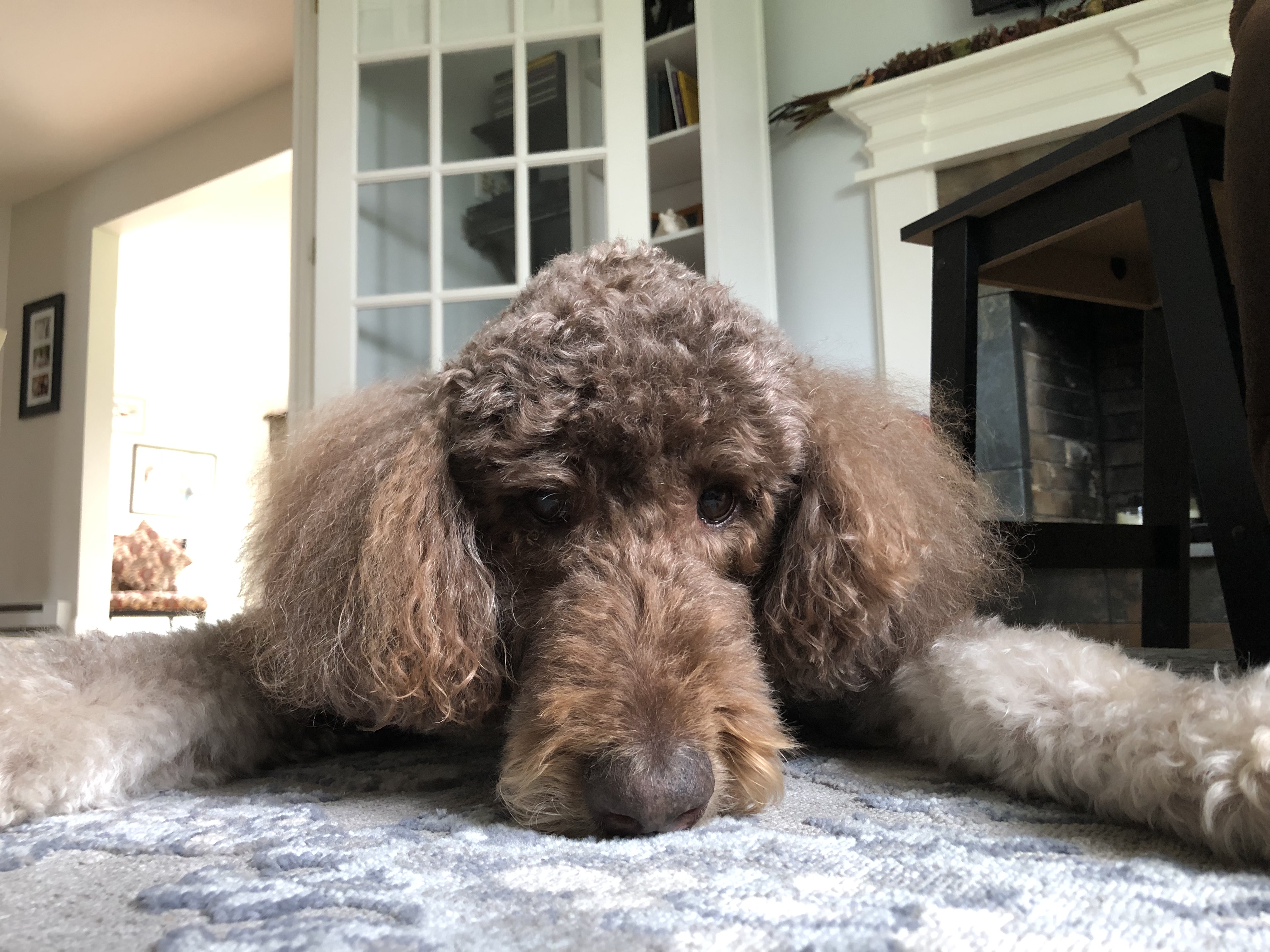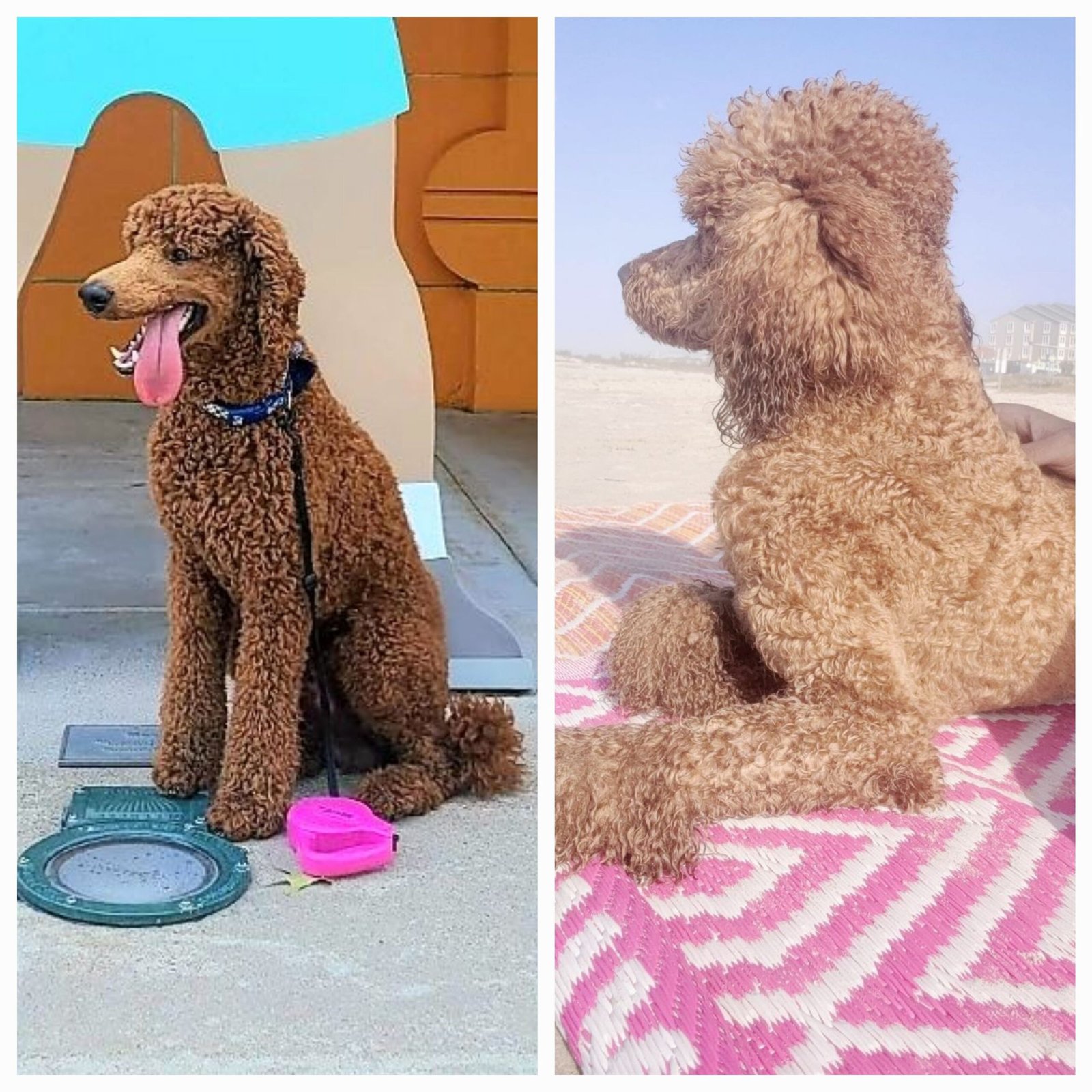Have you ever wondered if poodles can get darker? Well, it turns out that they can! While poodles are known for their distinctive curly, dense coats, their coat color can evolve and change over time. This means that poodles can indeed get darker as they grow older.
Poodles come in a variety of colors, including black, white, apricot, brown, and silver, among others. The specific genes responsible for coat color in poodles can result in variations in shade and intensity. Additionally, factors such as sunlight exposure, seasonal changes, and natural aging can cause a poodle’s coat to darken or lighten. So, if you have a poodle and notice its coat getting darker, don’t be surprised—it’s a natural and fascinating process!
Poodles can experience coat color changes as they mature. While they are born with a certain color, their coat can darken or lighten as they grow older. This is particularly common in poodles with a parti-colored or phantom-patterned coat. Factors such as genetics, hormones, and sun exposure can all contribute to coat color changes. It’s important to note that not all poodles will experience coat darkening, and individual variations can occur. Regular grooming and proper care can help maintain a poodle’s coat color.

The Changing Colors of Poodles
Poodles are known for their beautiful and unique coat colors, but can they change color over time? This is a common question among poodle owners, and the answer is not as straightforward as you might think. While poodles generally do not change their coat color dramatically, there are a few factors that can cause some variations in their appearance. Let’s explore whether poodles can get darker and what influences these changes.
1. Genetics
The genetics of a poodle play a significant role in determining its coat color. Poodles have a wide range of colors, including white, black, apricot, brown, and more. These colors are determined by the presence of specific genes that control pigmentation. However, it’s important to note that once a poodle is born with a certain coat color, the genes responsible for that color do not change throughout its life. So, genetically speaking, poodles do not naturally get darker or lighter as they age.
2. Sun Exposure
Sun exposure can have an impact on a poodle’s coat color. Just like human hair, prolonged exposure to sunlight can cause the pigments in a poodle’s fur to fade or lighten. This is especially true for poodles with black or dark-colored coats. If a poodle spends a lot of time outdoors, its coat may appear lighter over time due to sun bleaching. However, this change in color is not permanent and can be reversed if the poodle is kept out of direct sunlight.
3. Grooming Techniques
The way a poodle is groomed can also affect its appearance. Grooming techniques such as clipping, trimming, and shaving can give the illusion of a darker or lighter coat. When a poodle’s fur is clipped short, it may appear darker because the underlying skin is more visible. On the other hand, when a poodle is left with longer fur, it may give the impression of a lighter coat. However, it’s important to note that these changes in appearance are only temporary and do not actually alter the poodle’s natural coat color.
4. Aging Process
As poodles age, their coat color may undergo subtle changes. Just like humans, poodles can experience graying or lightening of their fur as they get older. This is a natural part of the aging process and is typically more noticeable in poodles with darker coat colors. While these changes may make the poodle’s coat appear slightly different, they do not result in a significant darkening or lightening of the overall color.
Maintaining a Poodle’s Coat Color
If you want to maintain your poodle’s coat color, there are a few steps you can take:
- Protect your poodle from excessive sun exposure by providing shade or using pet-safe sunscreen.
- Follow a regular grooming routine to keep your poodle’s coat healthy and vibrant.
- Consult with a professional groomer to determine the best grooming techniques for your poodle’s coat color.
- Provide a balanced diet and proper care to ensure your poodle’s overall health, which can contribute to a beautiful coat.
Conclusion
In conclusion, while poodles may undergo minor changes in their coat color due to sun exposure, grooming techniques, and the natural aging process, they do not naturally get significantly darker or lighter as they age. The genetics of a poodle determine its coat color from birth, and these genes do not change over time. By taking proper care of your poodle’s coat and providing the necessary protection, you can help maintain its beautiful color throughout its life.
Key Takeaways
- Poodles can get darker with age due to changes in their fur pigment.
- Factors such as genetics, sun exposure, and grooming can also contribute to a poodle’s darkening coat.
- Some poodles may develop a “fading gene” that causes their coat color to lighten over time.
- If you notice your poodle’s coat getting darker, consult a veterinarian to rule out any underlying health issues.
- Regular grooming and proper care can help maintain your poodle’s coat color and overall health.
Frequently Asked Questions
In this section, you will find answers to some commonly asked questions about whether or not poodles can get darker in color.
1. Can poodles change color as they grow older?
Yes, poodles can change color as they mature. Some poodles are born with lighter shades of fur that may darken or lighten as they get older. This change in color is primarily seen in poodles with parti or phantom coat patterns.
These coat patterns involve patches or strips of different colored fur, and the extent and pattern of these markings can change as the poodle grows. So, while poodles can change color as they age, it is more prominent in certain coat patterns and may not be as noticeable in solid-colored poodles.
2. What factors can contribute to a poodle’s coat darkening?
Several factors can influence the darkening of a poodle’s coat. One of the most significant factors is exposure to sunlight. Poodles who spend a lot of time outdoors under the sun may experience their fur darkening due to the sun’s natural bleaching effect.
In addition to sun exposure, hormonal changes can also impact a poodle’s coat color. For example, female poodles may experience temporary darkening of their fur during pregnancy or heat cycles. Nutritional deficiencies or imbalances can also affect coat color, so maintaining a balanced diet is essential.
3. Can grooming practices affect a poodle’s coat color?
Grooming practices can indirectly influence a poodle’s coat color. Regular grooming sessions, including brushing and bathing, help maintain the health and condition of the fur. When the coat is well-cared for, it appears more vibrant and healthy, enhancing the natural color of the poodle’s fur.
However, excessive grooming or the use of certain products like harsh shampoos or dyes can potentially lead to fur damage or discoloration. It is recommended to consult a professional groomer for advice on appropriate grooming techniques and products to preserve the coat’s natural color.
4. Can a poodle’s coat darken due to health issues?
In some cases, a poodle’s coat may darken due to underlying health issues. Certain medical conditions, such as hypothyroidism or Cushing’s disease, can affect the pigmentation of a poodle’s fur, causing it to darken or change color.
If you notice any sudden or significant changes in your poodle’s coat color, it is essential to consult a veterinarian for a thorough examination to rule out any underlying health problems.
5. Can poodles’ coat color change back to its original shade?
In some cases, a poodle’s coat color may revert back to its original shade. This can happen when a younger poodle with a lighter coat matures and their fur undergoes natural color changes as they age.
However, if the change in coat color is due to external factors like sun exposure or grooming practices, it is unlikely that the fur will revert back to its original shade without intervention. Regular care, including appropriate grooming and protection from excessive sun exposure, can help maintain the desired coat color.

POODLE COLORS EXPLAINED| Do Poodles Fade?- The Truth| The Poodle Mom
In summary, poodles can indeed get darker as they age. Many poodle puppies are born with lighter coats that may darken as they mature.
Factors such as genetics, sun exposure, and overall health can also impact the color of a poodle’s coat. It’s important to note that not all poodles will experience a significant color change, and individual variations are common.
